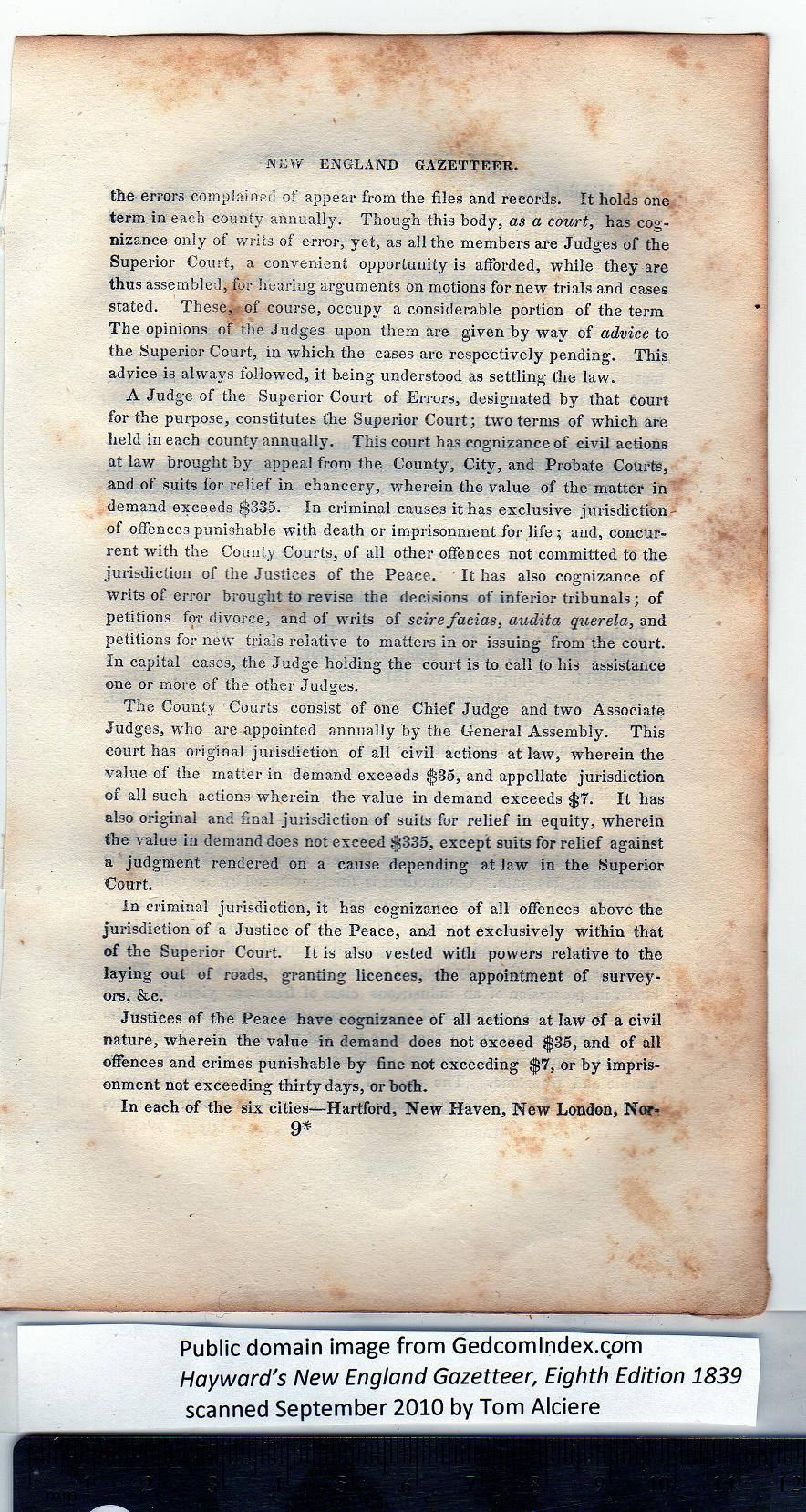|
NEW ENGLAND GAZETTEER.
the errors complained of appear from the files and records. It holds one
term in each county annually. Though this body, as a court, has cog-
nizance only of writs of error, yet, as all the members are Judges of tbe
Superior Court, a convenient opportunity is afforded, while they are
thus assembled, for hearing arguments on motions for new trials and cases
stated. These, of course, occupy a considerable portion of the term
The opinions of the Judges upon them are given hy way of advice to
the Superior Court, in which the cases are respectively pending. This
advice is always followed, it being understood as settling the law.
A Judge of the Superior Court of Errors, designated by that court
for the purpose, constitutes the Superior Court; two terms of which are
held in each county annually. This court has cognizance of civil actions
at law brought by appeal from the County, City, and Probate Courts,
and of suits for relief in chancery, wherein the value of the matter in
demand exceeds $33-5. In criminal causes it has exclusive jurisdiction
of offence.s punishable with death or imprisonment for life ; and, concur-
rent with the County Courts, of all other offences not committed to the
jurisdiction of the Justices of the Peace. It has also cognizance of
writs of error brought to revise the decisions of inferior tribunals; of
petitions for divorce, and of writs of scire facias, audita querela, and
petitions for new trials relative to matters in or issuing from the court.
In capital cases, the Judge holding the court is to call to his assistance
one or more of the other Judges.
The County Courts consist of one Chief Judge and two Associate
Judges, who are appointed annually hy the General Assembly. This
court has original jurisdiction of all civil actions at law, wherein the
value of the matter in demand exceeds $35, and appellate jurisdiction
of all such actions wherein the value in demand exceeds $7. It has
also original and final jurisdiction of suits for relief in equity, wherein
the value in demand does not exceed §335, except suits for relief against
a judgment rendered on a cause depending at law in the Superior
Court.
In criminal jurisdiction, it has cognizance of all offences above the
jurisdiction of a Justice of the Peace, and not exclusively within that
of the Superior Court. It is also vested with powers relative to the
laying out of roads, granting licences, the appointment of survey-
ors, &c.
Justices of the Peace have cognizance of all actions at law of a civil
nature, wherein the value in demand does not exceed $35, and of all
offences and crimes punishable by fine not exceeding $7, or by impris-
onment not exceeding thirty days, or both.
In each of the six cities—Hartford, New Haven, New London, Nor-
9*
PREVIOUS PAGE ... NEXT PAGE
This page was written in HTML using a program written in Python 3.2 and image-to-HTML text generated by ABBYY FineReader 11, Professional Edition.
|
